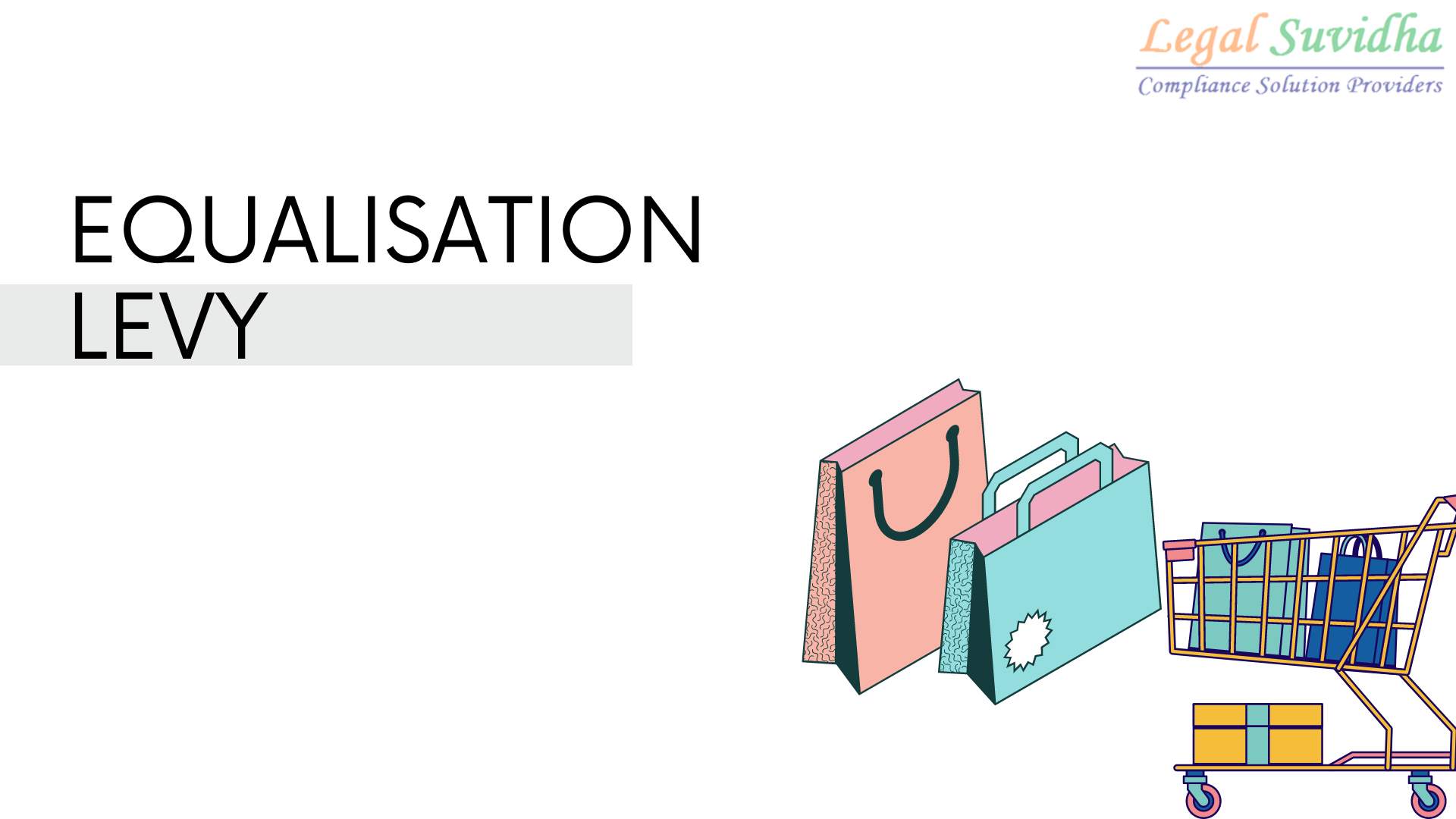EVERYTHING ABOUT EQUALISATION LEVY
Equalisation levy is a direct tax that was introduced by the Government of India in the year 2016 vide Finance Act, 2016. Equalisation Levy was not a part of the Income Tax Act, 1961 but rather it was introduced in the Finance Act, 2016.
In the year 2020, the Government of India vide Finance Act 2020, expanded the ambit of Equalisation Levy to include e-commerce supply and services provided by non-resident e-commerce operators. The rate of this levy is 2 percent of the total supply or service provided to a person. The threshold limit for the levy of this is Rs. 2 crores, in other words, it will be levied only when the aggregate amount of consideration received in the previous year exceeds Rs 2 crore.
What are the conditions for the applicability of Equalisation levy?
- Payment should be made to Non-Resident.
- The aggregate amount of consideration does not exceed Rs 1 lacs in F.Y
TAXATION OF EQUALISATION IN INDIA:
Article 265 of the Constitution of India gives sovereign the power to tax only if there exists a statute for a such tax levy. It is an undisputed fact that sovereign nations have the right to levy and collect tax but subject to the statute which levies such tax. Government of India can collect taxes on both type of income – accrued or arise in India and income actually received in India.
Multi-national companies often open a subsidiary in India so as to come within the meaning of “domestic company” as per the Income Tax Act, 1961 since the tax rates of a domestic company are less than that of a “foreign company”. Further, as per the Double Tax Avoidance Agreement (DTAA), the subsidiary company should have a Permanent Establishment in India, then only the income earned by the subsidiary can be taxed by the Indian Government. Foreign companies that have a Permanent Establishment (‘PE’) or Branch/ Project Office in India are taxable at the higher basic rate of 40%.
While, all these provisions are applicable on only those companies which have a permanent establishment in India, Indian legislation prior to the enactment of Finance Act, 2020 did not tax those companies, which operate in India but do not have a permanent establishment in this country.
Consequences of failure to deduct EL-
- Whole amount i.e Rs 300000 will not be allowed as a deductible expenditure.
- In addition, payer is liable for following penalties-
- Rs 1000 per day during which failure continues maximum of amount of equalisation levy.
- Time of deposit – 7th day of month following the month in which the equalisation levy is deducted.
- Annual due date of furnishing the annual statement – Form No 1 need to be submitted on or before 30th June of F.Y ended
When Equalisation Levy not applicable?
- E-commerce operator has a permanent establishment in India and such e-commerce supply is conducted with such PE.
- Sales, Turnover, gross receipts from e-commerce supply or services are less than Rs 2 crore during the previous year.







